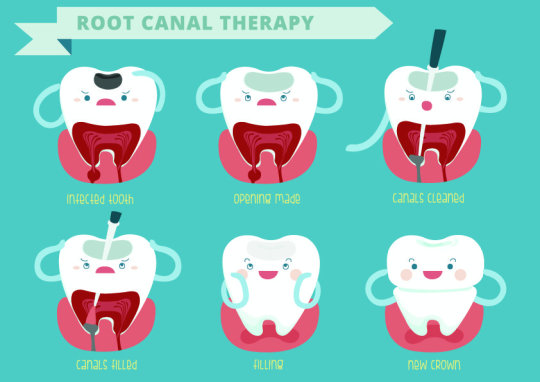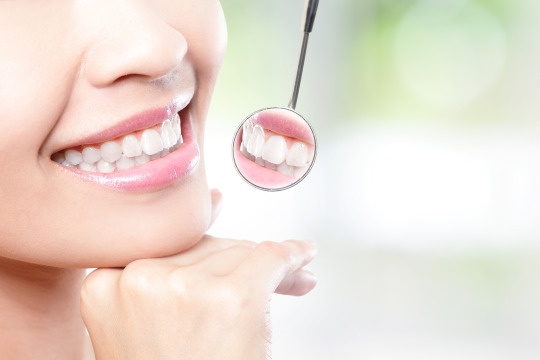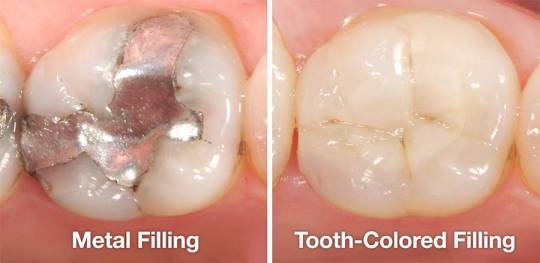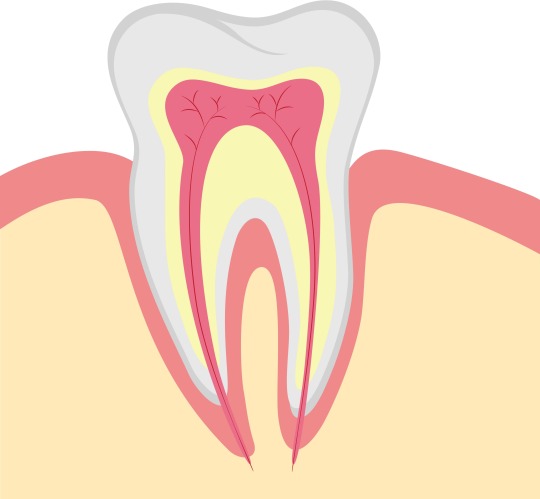Text
What Happens If You Go to Bed Without Brushing Your Teeth?

We know you’re a busy person with a full-time job, a family, and household chores that don’t do themselves. So every now and then you fall to bed exhausted. By the time you begin to drift off, you remember you didn’t brush your teeth before bed. You may think to yourself, “Okay, how bad can it be to only brush once a day?”.
Skipping that second brushing means that everything you have eaten throughout the day stick around on and between your teeth, leaving bacteria to feast on your teeth overnight. This bacteria naturally resides in the mouth, and just like every other living organism, these bacteria excrete waste after a meal. This waste is highly acidic and breaks down tooth enamel, causing cavities. And let’s not forget: Your breath will smell really bad. Not brushing your teeth lets bacteria multiply inside your mouth, eventually leading to a buildup of fuzzy, foul-smelling plaque.
When you hit the hay without brushing, plaque starts to harden on your teeth. Once this happens, it’s impossible to remove with a toothbrush and floss and can only be removed by visiting your dentist for a teeth cleaning.
What’s the worst that could happen?
Besides cavities, the build-up of plaque can lead to gum disease. The first sign is inflammation. You’ll have gums that bleed when you brush or floss. The gums see plaque buildup as an infection, so your immune system springs into action to attack that infection. When plaque build-up and inflammation is present long-term it can cause damage. By attacking the plaque buildup, your body starts to destroy the healthy tissues that hold your teeth in place, making the gums begin to pull away from the tooth. The good news is, if caught early enough, it can be reversed by treatment from your dentist and sticking to a good oral health routine.
This isn’t something that is going to happen overnight. The buildup of plaque that causes gum disease takes around 24 to 48 hours to develop, so if you forget to brush your teeth before bed every once in a while, it’s okay. Brushing your teeth the next morning will disrupt the bacteria before it gets a chance to really screw up your teeth and gums. But, if you make a habit of not brushing and flossing before bed, cavities and gum disease is definitely in your future.
BOTTOM LINE: BRUSHING YOUR TEETH ONCE A DAY ISN'T GOING TO CUT IT.
0 notes
Text
New Year's Resolutions for a Healthy Smile
2019 is here and a new year is often a time for us to turn our focus to setting resolutions. For many of us, some of our most important goals are to establish healthier habits, whether it is working out more, eating less, and perhaps even taking better care of our teeth. While you are resolving to improve to make a healthier “new you” don't forget to include your mouth! After all, oral health has such a direct impact on our health overall.
Like any goal, it is important to break your goal down into smaller, attainable S.M.A.R.T steps that can be achieved over a long period of time.
Here are a few tips our dental team has put together to help you meet your New Year resolution for a healthy smile.
1> MAKE SURE TO FLOSS: While most of us remember to brush our teeth at least twice a day, not as many of us can say that we floss the recommended once-per-day. Flossing helps remove food and bacteria from between the teeth and is a huge factor in preventing gum disease. By making it a habit to floss every day this year, you will be doing yourself and your mouth a considerable favor.
2> VISIT THE DENTIST: If it has been more than 6 months since your last dental cleaning, you're due. The icky sticky goo can cause gum disease, bad breath, and other dental issues.No one knows better than your dentist when it comes to keeping your mouth healthy. Scheduling regular checkups allows your us to monitor your dental health and address any concerns before they become bigger problems.
3> EAT HEALTHY: A healthy diet is important for maintaining good dental health. Sugary and highly acidic food and drinks are bad for your teeth and can lead to a build-up of the bacterias that lead to tooth decay. Make a point this year to incorporate more tooth-healthy foods such as dairy, veggies and fruits in your daily diet.
4> STOP SMOKING: If you currently use tobacco, your risk for gum disease is doubled compared to a non-smoker. Instead, try out a healthier habit, like chewing sugar free gum, which stimulates the flow of saliva that washes away bacteria. Consider quitting this year. Your teeth, gums, and the rest of your body will thank you for it!
You owe a lot to those teeth and gums of yours. Do them a favor this New Year by practicing excellent dental health habits and smile big in 2019!

0 notes
Text
Home Remedies for a Toothache
Sudden toothaches are very painful, so much so that it can even hinder you from getting to your local dentist who can solve the problem. Toothache symptoms might include:
Sharp tooth pain that feels like someone is stabbing at your tooth with something pointed, like a pick
Throbbing tooth pain where you might feel like your tooth has its own heartbeat
Inflammation around the tooth, such as in the gumline
Red, irritated gums
Generalized mouth pain that is hard to pinpoint
We understand tooth pain is not something to take lightly, so we wanted to provide some quick pain relief techniques using natural remedies to hold the pain at bay until you can get help. These are helpful because many of the items used to provide the relief can be found in almost every household.
Note: these pain relief techniques are only temporary and are in no way a substitute for seeking dental advice or help.
How to Stop a Toothache with Home Remedies
Saltwater Mouthwash
A common method for relieving tooth pain can be accomplished easily with just salt and warm water. This solution helps to loosen debris lodged in cavities or between teeth and may also reduce swelling and the aching sensation.
A saltwater rinse can be made by dissolving 1 teaspoon of salt in a glass of warm water and swish around in the mouth for about 30 seconds before spitting out. This process can be repeated as often as needed.
Cold Compress
A cold compress or an ice pack can help ease the dental pain, especially if a toothache is due swollen gums. The application of a cold compress or ice pack will constrict the blood vessels in the affected area, slowing the flow of blood and helping to numb the pain
Garlic
Garlic contains a compound called allicin, which accounts for its powerful antibacterial properties.
A fresh clove of garlic should first be crushed and then mixed with a little salt, and the mixture applied to the affected tooth.
Hydrogen Peroxide Rinse
If a toothache is caused by infection, a hydrogen peroxide solution is an effective antibacterial mouthwash.
It should be mixed in equal parts of 3 percent hydrogen peroxide and water and swished in the mouth for about 30 seconds. After spitting it out, the mouth should be rinsed several times with plain water.
Cloves
Cloves contain eugenol, a chemical compound that acts as a natural anesthetic. Its antibacterial properties can also help fight tooth infections.
Soak a small cotton ball with clove oil and apply it to the area affected by the painful tooth.
Onions
Onions are known for their antiseptic properties. They can provide pain relief by killing infection-causing germs.
At the first indication of trouble, simply chew a small slice of fresh onion for a few minutes, or you can hold the slice in your mouth and bite it to release the juices that soothe the pain.
Cucumber
If you want something that tastes better than onions and cloves, cucumber slices can actually help you get instant relief from a toothache. Cucumbers have hemostatic properties which may reduce the flow of blood around the affected tooth. This may give you some relief from pain, especially if it is a direct result of a recent root canal.
A slice of chilled, fresh cucumber can be held against the tooth that hurts. You can also try mashing some of the cucumber into a paste and applying it to the area.
Turmeric
Turmeric utilizes antiseptic and antibacterial properties that aid in relieving pain and swelling.
Make a paste using this spice and water, then apply to the tooth.
Apple Cider Vinegar
Not only does apple cider vinegar have anti-inflammatory and antiseptic properties, but because it is acidic, it also kills the bacteria causing your toothache.
Soak a cotton ball in it and press it gently on the affected tooth.
The best way to prevent a toothache or dental abscesses is by keeping teeth and gums as healthy as possible. These home remedies are meant to provide temporary relief only. It is important to seek immediate treatment from a dentist once a toothache lasts for more than a day or two.
If dental pain is not treated straight away, it might lead to more serious problems, such as gum disease or a dental abscess. An abscess is caused when bacteria infect the innermost part of the tooth called a dental pulp. If you are experiencing tooth pain don't hesitate to call our office immediately.

0 notes
Text
Root Canal Myths Busted!
The phrase “root canal” can be unnerving to a person who has never gone through the procedure. Well, we're here to give you the scoop on this endodontic procedure, why it's performed and why it could actually save your tooth.
Myth #1: Root Canals are painful.
Fact: You'll be relieved to hear that root canals are performed to alleviate your pain, not cause it.
Because of the advanced techniques we use here in our office, it is usually a comfortable procedure without any pain.
Myth #2: Extractions are a good alternative to a root canal.
Fact: Keeping your natural teeth is always the best option. If the infection is caught early, a root canal can help preserve your natural tooth.
When a tooth is removed, it's gone forever. Tooth loss can cause more problems down the road. Dentists only resort to tooth extraction in cases of the most severe infection.
Myth #3: A root canal causes illness.
Fact: If you do not have a root canal performed, you risk allowing bacteria from the infected tooth to spread throughout your body.
Root Canal Therapy “cleans” the infection out of the tooth and is recommended to prevent infection of the tissue around the affected tooth which may result in abscesses.
Myth #4: Root canals require multiple appointments.
Fact: Most root canals can be performed in about one to two hours in just one visit.
Those with more severe infections may have to come back for additional visits to make sure there are no complications and the infection has fully healed.
With proper care, teeth that have undergone root canal treatment can last a lifetime. For more information about root canal therapy, contact our office today!

0 notes
Text
Does Activated Charcoal Really Whiten Teeth?
Activated charcoal is a popular topic these days. a trend involving using activated charcoal to whiten the teeth has exploded on the internet. It's hard to be on social media and not see someone using it for teeth whitening purposes. The question on everyone's mind is, “does it REALLY work?”
What is Activated Charcoal?
It isn't the same charcoal that you would use in your barbeque-although they are both made from the same base materials.
Activated charcoal is a finely milled black powder made from coconut shells, bone char, olive pits, coal, sawdust, or other materials. The charcoal is processed with high heat, which “activates” it. This changes its internal structure, making it more porous than regular charcoal.
Can Activated Charcoal Safely Whiten Teeth?
Activated charcoal has been FDA approved for many health uses. The American Dental Association has not currently approved any activated charcoal products for dentistry.
However, the chemical properties of activated charcoal are effective in absorbing plaque and other compounds that stain teeth - it binds to them, resulting in whiter teeth.
How to Do it
Generally, the mineral is sold in tablet form and can be purchased from your local health food store or pharmacy. In a container, grind up 1-2 tablets into a fine dust and add about 1-2 teaspoons of water to form a paste. Dab the mixture onto your teeth, rather than brushing it on, to avoid damaging your tooth enamel. Leave the activated charcoal paste on your teeth for three minutes to ensure that it has had enough time to bind with surface stains on your teeth, then thoroughly rinse your mouth out several times before brushing your teeth clean.
Use Activated Charcoal in Moderation
Teeth enamel doesn't regrow. Once it's gone, it's gone forever. So, be cautious when using an abrasive substance on your teeth. Rather than brushing it on, consider smearing the product on your teeth. This allows it to whiten the teeth without harming the tooth enamel.

0 notes
Text
Most Common Denture Problems
Dentures are a widely used solution for tooth loss. A set of well-made and properly fitted dentures can improve a person's appearance, boost their confidence, and make a huge difference in their daily lives. Today's dentures are more comfortable and natural looking than they were in the past. However, if you don't take proper care of your dentures, problems can occur.
Let's take a look at the two most common denture problems and how they can be treated.
Ill-Fitting Dentures: Your dentures should rest snugly against the gums and not slide around. A common issue among denture wearers is ill-fitting dentures, which can cause mild or severe inflammation of the gums and be painful. When ill-fitting dentures begin to rub against the gums, it leads to soreness and swelling. If left untreated, this can lead to wearing dentures intolerable.
Because your jaw and gums can change after tooth removal, regular adjustments may be necessary to keep your dentures fitting properly. If left untreated, irritated gums and sore spots can easily become infected. If a sore spot develops, contact your dentist immediately to reduce the risk of infection.
Stains: Most dentures are made with acrylic and can become stained by many of the same substances that can stain natural teeth such as coffee, sodas, red wine, and smoking. Plaque and tartar can also build-up on dentures just as they do on natural teeth.
Cleaning your dentures properly can help control staining. Here are some tips for cleaning your dentures.
At night, soak your dentures in a good cleaning solution. The recommended time for soaking is between 6-8 hours.
Use a toothpaste and toothbrush specially designed for dentures. Regular toothpaste and brushes are abrasive enough to scratch the surface of dentures.
If denture stains start to build up, you can take your dentures in for an ultrasonic cleaning, which may remove some of the stains.
Dentures don't have to be a bad thing. With the right fit and proper care, they can look and feel wonderful. Contact our dental office today to learn more or to schedule your consultation with our expert dentist.

0 notes
Text
Popular Products Used to Naturally Whiten Teeth
When it comes to teeth whitening, you may have heard of many different methods - from oil pulling to charcoal - there are so many different choices that you may see online or in magazines. It's tempting to think ingredients in our own kitchens could hold the key to a brighter smile. Be mindful that some natural, at-home remedies are safe and can whiten your teeth, while others won't and might harm your teeth or gums.
Let's go ahead and look at some of the natural teeth whiteners that are commonly used.
Activated Charcoal
This may seem like one of those practical jokes of the internet, except it actually works. Activated charcoal is created when wood, peat, bamboo, or coconuts are burned at extremely high temperatures with a gas. This process creates a porous surface on activated charcoal particles and allows activated charcoal to bind to the teeth. One thing you should be aware of is that the dark black activated charcoal can actually tattoo gums an unsightly dark color.
Baking Soda
Whitening your teeth using baking soda has been around for quite a long time and a solution your grandmother probably told you about. You can add baking soda to your toothpaste, or mix with some with hydrogen peroxide to help eliminate stains. Be aware that baking soda is so hard on the teeth because of its abrasive nature and overuse could damage tooth enamel.
Apple Cider Vinegar
Nowadays, apple cider vinegar seems to work as a remedy for everything! When it comes to teeth whitening, apple cider vinegar is no quick fix. It must be applied daily, and you will not see any results for at least a month. Because apple cider vinegar is so acidic, make sure to rinse your mouth, brush with your regular toothpaste, and rinse your mouth again. If you do not re-brush your teeth, you are risking damaging your tooth enamel from the acid in the vinegar.
Coconut Oil
To give your teeth to give them a brighter look, swish around a teaspoon of coconut oil in your mouth for 5-10 minutes. The oil removes mild plaque build-up while causing an anti-inflammatory effect to the gums causing them to become pinker. This, in turn, makes your teeth look whiter.
There are actually plenty of natural ingredients that you can use to whiten your teeth and these natural remedies may give you some success, but if you're an avid smoker or coffee drinker, you may need a professional.

0 notes
Text
Metal vs. Tooth Colored Fillings
At some point, almost everyone has had a cavity. When a tooth develops a cavity, the decayed areas of the tooth must be removed by performing a root canal. The empty space that is left is then filled in with strong and durable amalgam or composite materials to provide the tooth with the support it needs to function normally.
In the past, patients' fillings were primarily made of a silver amalgam material. Todays patients also have the option of choosing composite, tooth-colored filling materials that seamlessly blend in with surrounding teeth.
A good filling will last anywhere from 5 to 50 years. If you're going to have a filling in your mouth for that long, it's fair enough to want to know what's the difference in these two types of fillings and which one is right for you.
Silver Amalgam Fillings
Silver fillings are still offered by most dentists. If you have a metal filling in your mouth, chances are it's a silver amalgam filling. Some patients even prefer silver fillings to composite fillings for several reasons:
Silver fillings are sturdy and they last a long time in most patients.
The placement of amalgam fillings takes less time.
They do not require use of advanced dental tools or techniques, lowering the cost of treatment.
There are some drawbacks associated with silver amalgam fillings, including:
More of the tooth structure has to be removed to ensure a long-lasting filling.
It is more noticeable.
The material in amalgam fillings expand and contract differently than the natural tooth surrounding it. This can result in cracks around the filling that can eventually lead to decay forming in the cracks, tooth sensitivity, or tooth breakage.
Tooth-Colored Composite Fillings
These days, more and more patients are getting tooth-colored fillings due to their many benefits, including:
They don't require your dentist to remove as much of the natural tooth.
The tooth-colored material can be matched to blend in with surrounding teeth and look more natural.
They can be repaired without removing the entire filling.
Patients report less post-treatment discomfort and sensitivity.
Although many patients prefer composite fillings, there are some disadvantages that they should be aware of:
They are more expensive than silver fillings
It takes longer to place a composite filling than it does for a metal filling.
Oftentimes, composite fillings are not covered by dental insurance.
Ultimately, the best dental filling is no dental filling. Prevention is the best medicine. However, if you need a cavity filled, your dentist can talk to you about your options, answer your questions, and help you decide which is right for you.
If you think you may have a cavity, the best thing you can do is see your dentist early before the decay gets worse. The earlier you catch cavities, the more options you have!

0 notes
Text
Tooth Decay and How to Prevent it
Getting a cavity isn't something you enjoy experiencing, and yet, it happens to almost everyone at least once. Cavities occur as a result of tooth decay. Tooth decay occurs when foods containing carbohydrates such as breads, cereals, milk, soda, fruits, cakes, or candy are left on the teeth. Bacteria that live in the mouth digest these foods, turning them into acids. The bacteria, acid, food debris and saliva combine to form plaque, a whitish, sticky substance, that accumulates on and clings to the teeth and gums. The acids in plaque dissolve the enamel surface of the teeth, creating holes in the teeth called cavities. Tooth decay can affect both the enamel (the outer coating of the tooth) and the dentin (inner layer of the tooth) and in some cases extend into the pulp (nerve).
Cavities can cause the enamel, protective part of the tooth, to weaken a break. Because of all the damage they can cause to your teeth, cavities should never go untreated.
Treating Cavities
There are several ways to go about treating cavities, depending on how bad the decay is.
If you catch the decay early enough, a fluoride varnish applied to the affected teeth will be enough to stop the decay in its tracks.
If you've already got a cavity, your dentist will have to remove the decay and fill the hole with a filling.
If the decay has damaged your tooth's nerve center, you may need a root canal to remove the nerve and restore it with crown.
If your tooth is severely damaged, it may need to be removed.
Depending on the damage, there are varying degrees of procedures which one can undergo to fix a wide range of damage to the teeth. Using fillings, composites, alloys, ceramics, and crowns and bridges, we can restore the health, look, and feel of your teeth!
Preventing Cavities
So how can you protect your teeth from cavities? Floss regularly and brush with fluoridated toothpaste.You can also remove leftover food from your teeth by rinsing with water after a meal or snack. And, as always, seeing your dentist twice a year will prevent and catch cavities before they cause too much trouble!

0 notes
Text
5 reasons to opt For Cosmetic Dentistry
When it comes to looking your best, your smile does say a lot about you to other people. If you have broken, misshapen, or decayed teeth, it can have a significant impact on your personal life and more.
When you think of cosmetic dentistry, you may think that it is something reserved for celebrities or the rich, but that's not the case. Thanks to advancements in technology and materials, cosmetic dentistry has become more affordable to the public and is steadily growing in popularity. In fact, there is a wide range of treatments offered today and they are all geared towards one end result… helping patients achieve a beautiful smile.
If you are at crossroads about having cosmetic dentistry, here are 5 reasons why you should take the bold step today.
A Little Cosmetic Dentistry Can go a Long Way
Some of the most popular cosmetic dentistry procedures, such as teeth whitening, are simple and easy to do, but they can have dramatic results.
Raise Your Self-Esteem
Self-confidence is the key to taking charge of your life – and a wonderful smile can be the much-needed boost you need to help you gain a new lease on life.
Competitively Priced
Cosmetic dentistry is now very affordable and you can achieve your dream look without necessarily breaking the bank. All the available options are offered at very competitive rates which most people can afford.
Retains Facial Structure
Missing teeth can lead to sagging and premature aging. Replacing teeth will lend your facial structure additional support and preserve your appearance.
Can Make You More Attractive
According to match.com 85% of people surveyed stated that bad teeth are one of the biggest turn off's. There is a wide array of cosmetic dentistry options to choose from that will best suit your needs and improve your smile.

0 notes
Text
Why is Dental Health Important?
Having a healthy mouth is more than just having attractive teeth. Oral health touches every aspect of our lives. If you think about it, our mouth is one of the parts of our body that is almost always in constant use. We use it to eat, talk, breathe, etc. Practicinggood dental health is important to maintaining a healthy mouth, teeth, and gums, but, it's not just about looks. We also need our teeth to hold the shape of ourface, the lips, and cheeks,to speak properly and clearly, and they help to chew foods for your well-being. What happens if I don't practice good dental health? When the plaque is not removed, it continues to build up and eventually causes tooth decay and gum disease.Cavities are painful places on your teeth where decay has eaten through the enamel and exposed a tooth's root. Hot or cold food or liquids can send a painful signal that something is wrong. However, cavities may not have any symptoms until after significant damage to the tooth. Early signs of tooth decay are easier to treat than advanced cases. If a cavity goes untreated, root canals, removal of teeth and other more expensive and invasive procedures could become the only treatment options available. This is why regular visits to your dental professional are so important. How to properly brush your teeth Daily brushing and flossing isprobably one of the most important things you can do to protect your teeth because it removes plaque and debris. Brush your teeth twice a day with a fluoride toothpaste and floss at least once per day. Place the toothbrush at a 45-degree angle to the gums. Gently brush in a circular motion. Brush the outer surfaces, inner surfaces, and chewing surfaces of the teeth. This will take about 2 minutes. Then brush the tongue by using a sweeping motion with the toothbrush or by using a tongue scraper. Once you are done brushing, it is important to clean the sides of the teeth with dental floss or other interdental brush. You can also rinse with an antibacterial mouth rinse. Should I only worry about cavities? Besides tooth decay, there are many problems that can arise by not taking the time to strive for a healthy mouth.A common complication of poor oral health is gum disease, which can be mild in the initial stages, but lead to much more severe problems if untreated. Gum disease is an infection of the tissues that support the teeth. It is one of the leading causes of tooth loss in adults. If not caught early and left untreated, it progresses toperiodontal disease, which may cause loss of teeth, infections and other complications. Regular dental check-ups and cleanings, brushing and flossing are vital to preventing gum disease and periodontitis. Your dental healthcan influence your overall health and well-being There is a direct relationship between the health of your mouth and your overall physical health. Experts say that certain diseases can first show their presence in the mouth and studies have indicated a link between periodontal disease and other health problems including heart complications, strokes, diabetes complications, and respiratory issues.A dental cleaning every six months helps to keep your teeth and gums healthy and could possibly reduce your risk of many health concerns.

0 notes
Text
Are You in Need of a Family Dentist?
Choosing the right family dentist can benefit the entire family. Family dentistry addresses oral hygiene and dental care needs at every stage of life, from toddlers and children to adolescents and adults.
Searching for the right family dentist in Murrells Inlet and the surrounding areas, means you have a lot of options. How do you know which dentist is right for your family?
Here are some tips that may help you choose the right dentist for your familys dental care needs.
As you consider the dentists in your area, you may want to ask the following:
Does the dentist provide services to meet the needs of every member of your family?
Do you feel that the family dentist and the staff provide a welcoming a positiveenvironment?
Does the dentist haveexperienceworking with children?
Other things to consider would be:
Check outreviewsfrom other patients. Previous patients are a great resource when trying to find the right family dentist.
Do they offer services to fit your familys needs?
Pediatric Dentistry for baby and preschooler
Orthodontics for young teenagers
General Dental Care and Cosmetic Procedures for myself, my spouse
An online search for family dentists in your area can be aconvenientway to find out what dental providers offer these services. For more information about their practice, visit their website, or call and ask questions.
If you are looking for a family dentist in Murrells Inlet, SC, please give us a call or stop by our office to learn more about the dental services that Carolina Dental Centercan provide for your family.

0 notes
Text
Smile Makeovers at Carolina Dental Center
The first step in any smile makeover is a thorough dental examination to ensure your concerns are simply cosmetic and not a sign of underlying dental issues. Once weve made sure your teeth are healthy, we can talk about the best ways to enhance your smile. Working together, we can achieve beautiful and long-lasting results. The most common procedures used incosmetic dentistryare fairly simple and others are more complex and require specialized care. From teethwhitening to dental implant restorations, ourdentists at Carolina Dental Center have the expertise to correct, enhance, and strengthen your teeth. Our state-of-the-art office is tailored to affordable cosmetic dentistry services to transform the appearance of your smile. Here are a few of the manycosmetic dental servicesthat we offer Murrells Inlet and the surrounding areas
Bridges
Dentures
Veneers
Tooth Colored Fillings
Dental Implant Restoration
Root Canals
One of the things we are known for is treating people with complex or severe dental problems, especially those who have delayed treatment out of fear. We combine human compassion, advanced dental skills, cutting-edge technology, and modern techniques to provide a unique dental experience and exceptional results. Even a few small enhancements can greatly improve your outlook and help you love your smile. Let us help you consider the varied cosmetic and restorative dental treatments available to you. Contact us today! (843) 357-2122

0 notes
Text
Is it Time to Brighten Your Smile?
Your teeth are healthy, free of decay and gum disease, but your finding that they are looking quite dull. If this is the case, then you can brighten your smile easily and quickly with a teeth whitening treatment at your dentist's office. A chair-side whitening treatment can make your smile up to 8 shades brighter in only about an hour. Now that you are smiling with confidence, knowing that your smile is healthyandwhite, there are some suggestions to follow to help maximize your results.
Touch up treatments are recommended every 6 - 12 months
Avoid teeth staining foods, especially for the first week after
Practice good dental hygiene

0 notes
Text
Meet Dr. Jason Meares, DDS
Dr. Jason Meares believes that caring for your teeth and smile is one of the most important factors in promoting good health. Dr. Meares is known for his caring and educational approach, his ability to listen to each patient's desires, and for involving each patient in the development of their own unique treatment plan. He will only recommend the treatments and procedures that are necessary to get your oral health back into excellent condition so that you can enjoy a beautiful, confident smile and a much better quality of life. Dr. Meares loves his profession and the satisfaction that comes from making smiles healthier and brighter. He loves the rewarding feeling that comes with providing care and enhancing smiles. When he helps patients reach their oral health goals, it feels like he's reached a goal as well.

0 notes